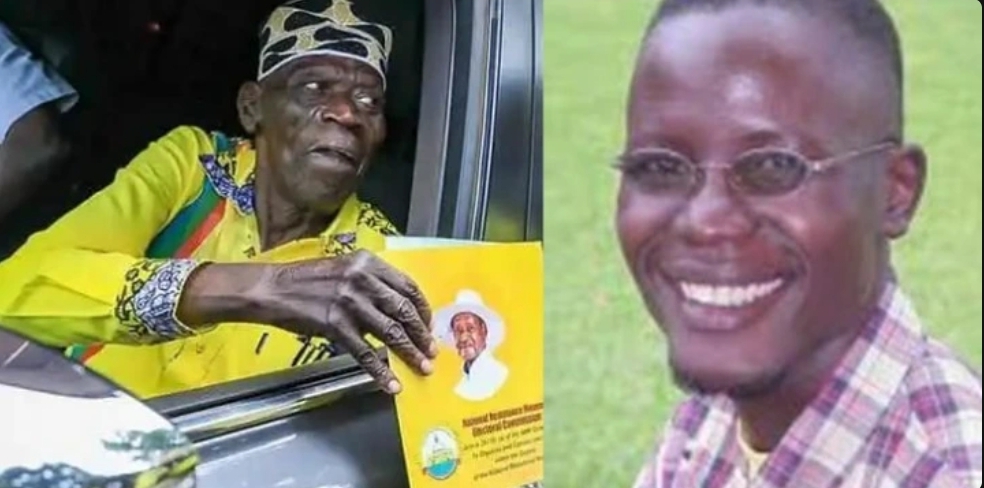Ex-New Vision Satirist Harry Sagara Urges Elderly Moses Ali to Read the Writing on The Wall, Hang His Boots & Go Home

Writing under “Time to Let Go, General,” Harry Sagara who for years kept millions of New Vision readers entertained (through his hilarious writings) has urged Deputy Prime Minister Gen Moses Ali to reflect on his frailty and general state of health and call it a day.
Harry Sagara’s original missive is reproduced hereunder:
VERBATTIM:
The first time I met General Moses Ali, I was a young journalist working with The New Vision. I had traveled to his home in Abirichaku, Adjumani, eager and a bit nervous to interview a man whose name had long echoed through Uganda’s political history.
Everything was going well until I made one fatal mistake: I referred to him as “Brigadier.”
“Kuma ya mamayako!” he bellowed, jabbing a sausage-sized finger at me. “You are the only journalist who doesn’t know that I am a General, I have always been A General!” (at that time he was a brigadier)
He then launched into a tirade of how he earned his General rank during his days in the Uganda National Rescue Front. That was the Moses Ali everyone feared and respected—formidable, sharp, commanding, and still hungry for recognition. But that was decades ago.
Today, the Moses Ali we see is a shadow of that lion. He can barely walk. He struggles to speak. His body shows unmistakable signs of debilitating illness, possibly Parkinson’s or dystonia. Yet, despite all this, he insists on clinging to power.
Recently, he even picked nomination forms to run for Parliament in 2026. The images speak volumes: Tanga Odoi, the NRM EC boss, had to literally walk to the General’s car to nominate him because he could not even walk on his own. This is not leadership. This is a national embarrassment.
There are whispers—stories in political circles—that Moses Ali and Museveni have a secret pact: that Moses Ali will never leave office as long as he lives. Some say it is because Moses Ali captured Kampala before Museveni’s NRA rebels even arrived. If this is true, then we are witnessing loyalty used as a cage rather than a crown.
But why the greed? If Moses Ali truly has such an agreement, why not allow one of his many children—he reportedly has over 30—to run and carry the torch? Why hold on so tightly to a role that demands strength and clarity he no longer possesses?
The Constitution is clear. Sovereignty belongs to the people, exercised through effective representation. Article 80(2)(f) of the Constitution disqualifies anyone of unsound mind from holding office. The Parliamentary Elections Act enforces this by mandating that nomination should be refused if a candidate does not meet constitutional qualifications.
Leadership is not a lifetime entitlement. It is a sacred trust, earned by capability, dignity, and service.
The Leadership Code Act obliges every public official to conduct themselves with integrity and uphold the dignity of their office. Watching Moses Ali today—frail, barely able to participate—is a painful violation of that code.
I blame not only Moses Ali. I blame those around him: his children, grandchildren, friends, and advisers. How can they watch a man so clearly incapacitated being paraded in public and accept it as normal? This is not loyalty; it is complicity.
I also blame the voters of West Nile who, out of nostalgia or fear, continue to put their faith in a man who is no longer fit to serve. This must stop.
It is heartbreaking to see a man who once commanded respect for capturing Kampala and holding key ministerial positions now struggling just to sit in his seat. There was even a story that once, while driving from Entebbe, Moses Ali chased down a reckless driver who had knocked down a monkey, insisting on justice—even among primates!
Now who will protect him?
If he collapses during parliamentary duties or worse, it would not only be a personal tragedy but a national embarrassment and a costly by-election for a country struggling to fund basic services.
Moses Ali has served under multiple regimes—from Idi Amin to Obote, and now Museveni. He was Minister of Finance, Foreign Affairs, Tourism, and Deputy Prime Minister. He has done more than enough.
General Moses Ali, thank you for your decades of service. But it is time to rest.
To the people of West Nile, especially those in Moyo, I urge you to look beyond sentimentality. There is a future beyond Moses Ali. There are capable, younger leaders ready to serve with energy and vision. Let us refuse to be held hostage by loyalty to a man who can no longer lead.
Let this next election be a protest vote—a clear message that West Nile will no longer tolerate leaders who refuse to leave office when they have clearly lost the capacity to serve.
Let us reclaim our dignity and demand representation that works for us—not ghosts of past glories.
Let us show that loyalty to West Nile means having leaders who can walk, talk, and fight for our interests today—not just cling to power for their own sake.



0 Comments